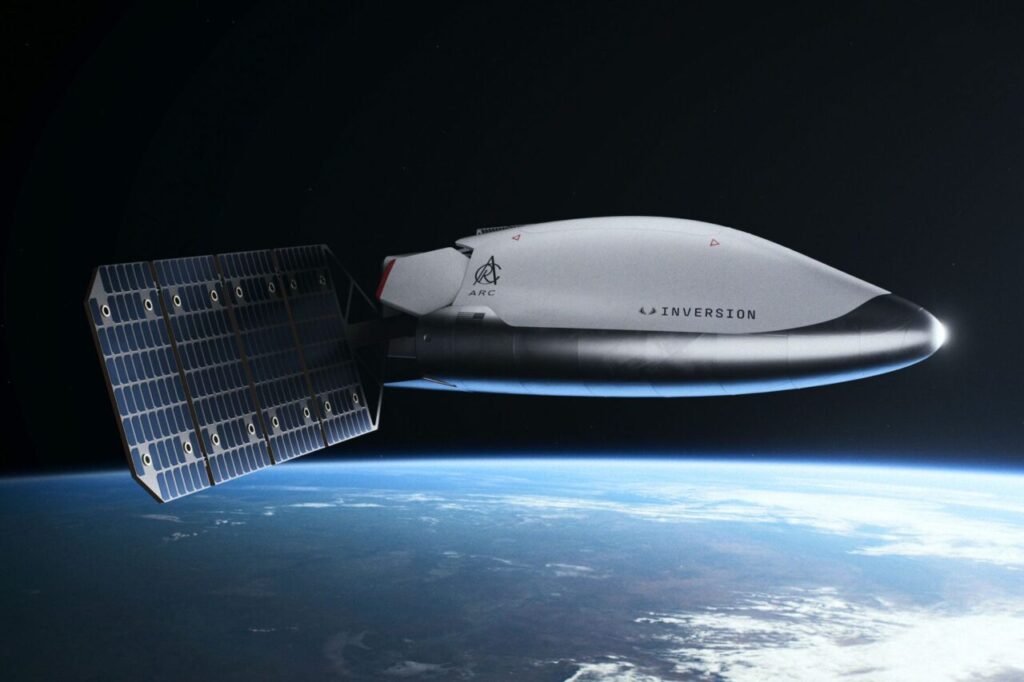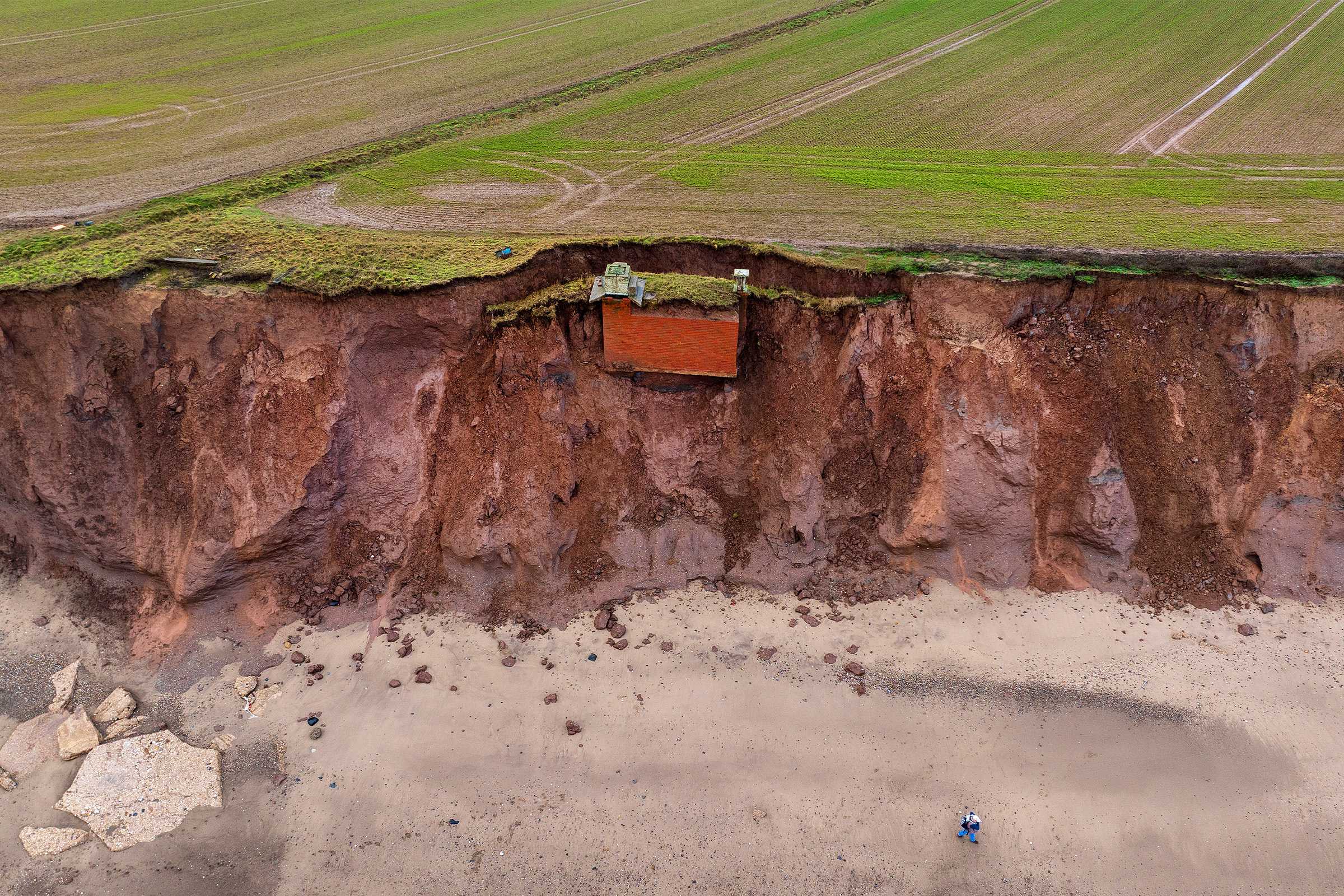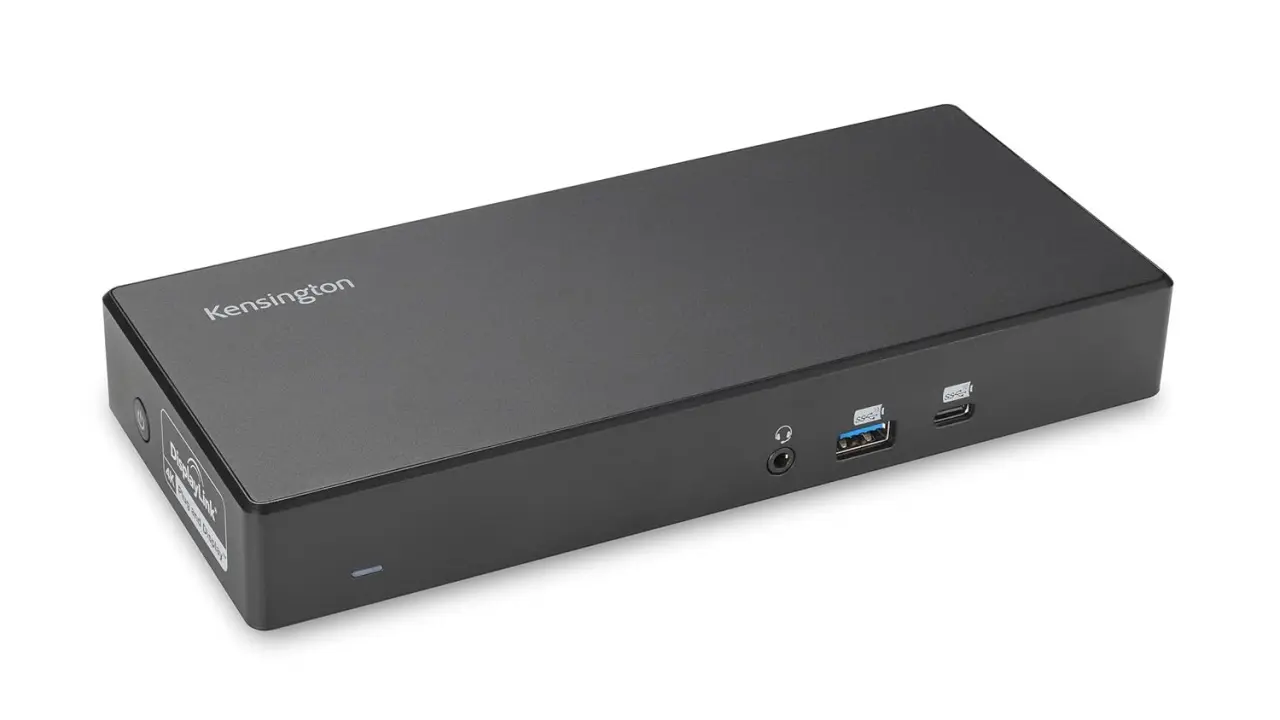
Inversion Space, a California-based space startup founded in 2021, is setting its sights on revolutionizing cargo delivery. The company is preparing to launch its flagship vehicle, known as Arc, which is designed to drop off cargo from low Earth orbit to any location on Earth within an hour. The spacecraft, unveiled this week, is a hybrid spaceplane and cargo capsule standing at 8 feet tall and 4 feet wide, capable of carrying up to 500 pounds (approximately 225 kilograms) of supplies.
The primary goal of Arc is to enhance global logistics by enabling rapid delivery from orbit. Once launched to low Earth orbit, the autonomous vehicle can store cargo for up to five years. When needed, Arc will re-enter the atmosphere and land on Earth using parachutes, employing a deorbit engine and an autonomously maneuverable parachute to ensure a safe descent. Inversion plans to establish a constellation of these reusable vehicles in orbit, dynamically returning them to Earth based on customer demand.
This innovative approach particularly appeals to military applications. Inversion Space aims to provide the U.S. military with a logistics capability that can quickly deliver mission-critical supplies to challenging environments. As stated by the company on social media platform X, “Arc reshapes defense readiness by enabling access to anywhere on Earth in under an hour – allowing for the rapid delivery of mission-critical cargo and effects to austere, infrastructure-limited, or denied environments.”
Inversion’s journey began with its first vehicle, Ray, which launched in January as part of SpaceX’s Transporter-12 rideshare mission. Ray served as a demonstration of the company’s technologies, testing its in-orbit systems and reentry capabilities. While the mission was largely successful, Ray experienced a propulsion issue that prevented it from executing a planned re-entry. In a company statement, Inversion noted, “Our first spacecraft, Ray, has completed its mission on-orbit – serving as an extremely successful testbed for validating key technologies despite not attempting re-entry due to an on-orbit short circuit in a component preventing our deorbit engine from igniting.”
Inversion Space emphasizes that nearly all systems aboard Ray were developed in-house by a dedicated team of just 25 people. The startup is ambitious in its goals, planning to manufacture hundreds of its delivery vehicles annually and aiming to establish its constellation of cargo reentry spacecraft by 2028.
As the company works toward its ambitious launch timeline, the potential implications for global logistics and military operations are significant. If successful, Inversion Space could change the way cargo is transported around the world, offering unprecedented speed and accessibility.







